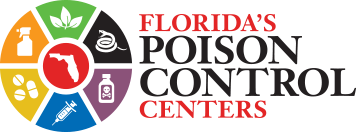Hurricanes
Preventing Poisonings After a Hurricane
After a hurricane or other natural disaster, poison control centers traditionally experience an increase in poisoning calls. Below are some of the most common poisonings after a hurricane and tips to help keep your family safe.
Remember, Florida’s Poison Control Centers are available 24 hours a day, even during a storm, at 1-800-222-1222.
Carbon Monoxide (CO) Poisoning
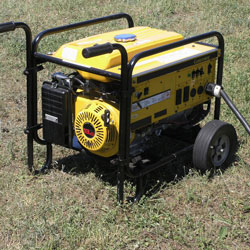 Carbon monoxide (CO) poisoning is preventable, but it is the most common cause of hospitalization and death from a poisoning following a hurricane. These incidents typically occur in the first few hours to days after the storm.
Carbon monoxide (CO) poisoning is preventable, but it is the most common cause of hospitalization and death from a poisoning following a hurricane. These incidents typically occur in the first few hours to days after the storm.
Carbon monoxide is a non-irritating, odorless, colorless gas present in the exhaust/smoke from:
- Portable, gasoline-powered generators
- Vehicles
- Grills (charcoal, wood, or gas)
- Lawn equipment (gas-powered leaf blowers)
- Gasoline powered tools (compressors and saws)
Carbon monoxide is called a “silent killer” because it has no odor and people may dismiss the symptoms as the flu or other illnesses.
Symptoms of carbon monoxide poisoning can include:
- Fatigue, weakness
- Headache
- Nausea and/or vomiting
- Dizziness
- Confusion or bizarre behavior
- Loss of consciousness
When people use generators improperly – indoors, too close to homes, in garages, or outside bedroom windows – carbon monoxide can seep in and sicken or kill. Never use generators inside homes or garages, even if doors and windows are open.
Here are a few safety tips for using portable generators safely:
- Read and follow the manufacturer’s instructions.
- NEVER use a generator inside a home, garage, or carport or near open windows.
- Place generator outside, in a dry area, at least 20 feet away from windows, doors, and A/C intake vents.
- Install a battery-operated carbon monoxide detector near sleeping areas on every floor of your home. Be sure to test and replace the batteries regularly.
- Replace the detector every 10 years.
- Do not fill a generator with gas while it is running.
- Do not siphon gasoline using your mouth to fill a generator.
- If you experience sleepiness, dizziness, headaches, confusion, weakness, or your carbon monoxide alarm goes off, seek fresh air IMMEDIATELY and call 1-800-222-1222.
Additionally, never use an outdoor grill (gas, charcoal, or wood) inside the house or garage, as carbon monoxide may be generated.
Food & Water Safety
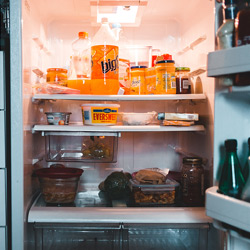 When the power goes out during or after a storm, take important steps to avoid foodborne illnesses.
When the power goes out during or after a storm, take important steps to avoid foodborne illnesses.
- Keep refrigerator and freezer doors closed to maintain cold temperatures as long as possible.
- In a power outage, food will generally stay safe:
- In a cold refrigerator – 4 hours
- In a half-full freezer – 24 hours
- In a full freezer – 48 hours
When in doubt, throw it out!
Regarding water safety, don’t store water in jugs previously containing or made for chemicals, or containers previously used for non-edible products. The chemicals can leach into the water. It is best to use food-grade containers only, such as empty water or milk jugs. Never drink bottled water that was submerged in floodwater.
Call 1-800-222-1222 if you experience any symptoms of food poisoning to talk to a poison specialist 24/7.
Medication Mistakes
 Medication errors are also a concern following a hurricane. Power outages may mean difficulty reading prescription labels and lack of refrigeration for certain medicines. Floodwaters can destroy medication as well.
Medication errors are also a concern following a hurricane. Power outages may mean difficulty reading prescription labels and lack of refrigeration for certain medicines. Floodwaters can destroy medication as well.
Here are a few tips of what to do before and after a storm to avoid medication mistakes.
Before a storm:
- Have a plan to keep refrigerated medications cool in case of a power outage.
- Make sure you have enough of your medications to last several days after a storm.
- Keep a list of all medications, supplements, vitamins, and health insurance information in water-resistant bags/containers.
During a power outage:
- Use a flashlight to make sure you’re taking the correct medication (dose, timing, method).
- Secure medications in child-resistant packaging to prevent access by children or pets, even if in a “go-bag” or travel kit.
- Call 1-800-222-1222 if you make a medication mistake, any time 24/7, for immediate help. We are always available, before, during and after a storm.
Chemicals & Cleaning Products
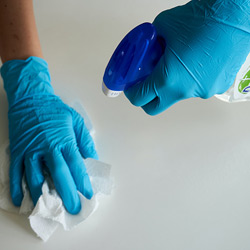 When you use chemicals or cleaning products following a storm, ensure that you are following the manufacturer’s instructions and only use them in a well-ventilated area.
When you use chemicals or cleaning products following a storm, ensure that you are following the manufacturer’s instructions and only use them in a well-ventilated area.
Here are a few tips regarding using chemicals and/or cleaning products:
- Use gloves when cleaning.
- Follow all dilution instructions.
- Do not mix chemicals. It could create a toxic gas.
- Open windows and doors to provide good air flow when cleaning.
- Avoid using chemicals near food products.
- If you become sick while cleaning, go to fresh air and call 1-800-222-1222.
Bites & Stings
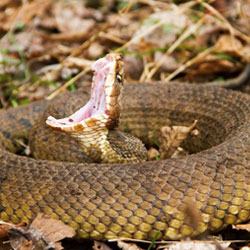 Following a hurricane, be extra cautious while cleaning up or moving debris. Animals can be displaced during a storm and may seek refuge in debris piles. You may also find snakes, bugs, or spiders in homes, yards, and pools after a storm. Stormwaters may carry or harbor venomous snakes flushed from their normal habitat.
Following a hurricane, be extra cautious while cleaning up or moving debris. Animals can be displaced during a storm and may seek refuge in debris piles. You may also find snakes, bugs, or spiders in homes, yards, and pools after a storm. Stormwaters may carry or harbor venomous snakes flushed from their normal habitat.
When cleaning up debris, wear protective clothing, including:
- Gloves
- Long pants
- Closed-toed shoes
- Goggles
For any bite or sting of any kind, call us at 1-800-222-1222 for help.
